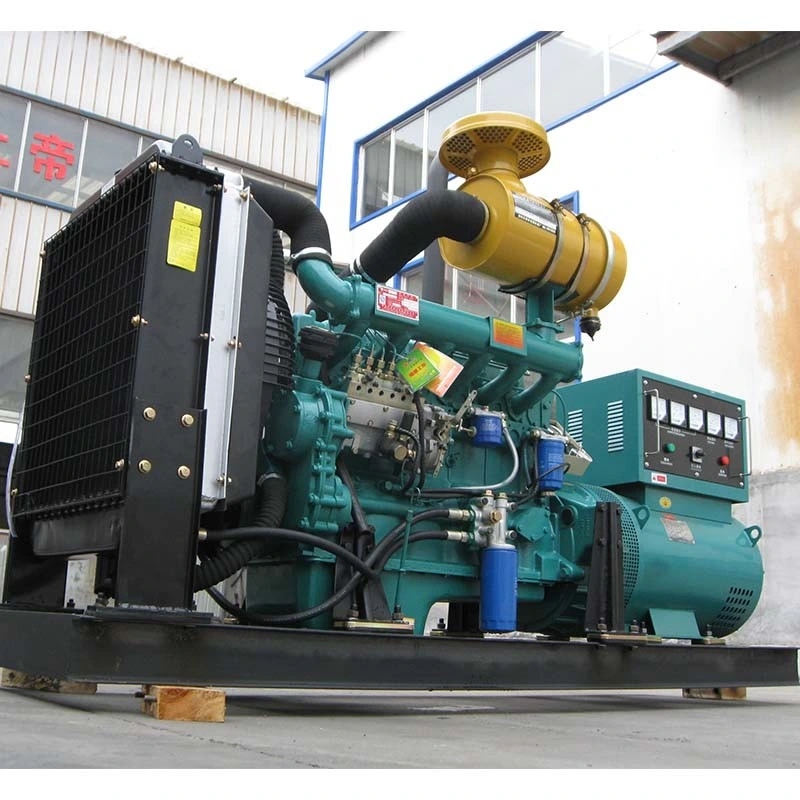Introduction:
Diesel generators have been a crucial source of backup power for various industries, businesses, and residential properties for decades. These reliable machines provide electricity during power outages or in off-grid locations where access to the main power grid is limited. However, the use of diesel generators is not without environmental implications. The emissions produced by diesel generators can contribute to air pollution and pose risks to public health and the environment. In this article, we will explore the environmental compliance requirements related to diesel generators and discuss ways to minimize their impact on the environment.
https://www.lkpowerplant.com/product/quick-delivery-emergency-standby-power-400kw-silent-type-diesel-generator-set-for-peru/ of Diesel Generators:
Diesel generators are known for their efficiency and reliability, but they also have a significant environmental impact. The combustion of diesel fuel in generators produces various pollutants, including particulate matter, nitrogen oxides (NOx), sulfur dioxide (SO2), carbon monoxide (CO), and hydrocarbons. These pollutants can contribute to smog formation, acid rain, and respiratory issues in humans.
Particulate matter emitted by diesel generators can be particularly harmful, as it consists of tiny particles that can penetrate deep into the lungs and cause respiratory problems. NOx emissions can react with other compounds in the atmosphere to form ground-level ozone, a key component of smog that can exacerbate respiratory conditions such as asthma. Additionally, sulfur dioxide emissions can contribute to acid rain, which can harm ecosystems and damage buildings and infrastructure.
Environmental Compliance Requirements:
To address the environmental impact of diesel generators, various regulations and guidelines have been put in place to ensure compliance with emissions standards and minimize pollution. These regulations aim to reduce harmful emissions from diesel generators and promote the use of cleaner technologies and fuels. Some of the key environmental compliance requirements related to diesel generators include:
1. Emissions Standards: Many countries have established emissions standards for diesel generators to limit the amount of pollutants they can emit. These standards typically set limits on the emissions of NOx, particulate matter, CO, and other pollutants. Diesel generator manufacturers are required to meet these standards to ensure that their products are environmentally friendly.
2. Permitting and Reporting: In many jurisdictions, the use of diesel generators is subject to permitting requirements to ensure that they are operated in compliance with environmental regulations. Operators may be required to obtain permits from environmental agencies and report emissions data on a regular basis. This helps regulators monitor and enforce compliance with emissions standards.
3. Fuel Quality: The quality of diesel fuel used in generators can also impact emissions. Low-quality fuel with high sulfur content can lead to higher emissions of SO2 and particulate matter. Many countries have implemented regulations on fuel quality to limit sulfur content and promote the use of cleaner fuels, such as ultra-low sulfur diesel (ULSD).
4. Best Management Practices: In addition to regulatory requirements, operators of diesel generators are encouraged to implement best management practices to minimize environmental impact. This may include proper maintenance of generators to ensure optimal performance and efficiency, regular inspection of emissions control systems, and proper disposal of waste materials.
Mitigation Strategies:
To minimize the environmental impact of diesel generators and ensure compliance with regulations, operators can implement various mitigation strategies. These strategies aim to reduce emissions, improve efficiency, and promote the use of cleaner technologies. Some of the key mitigation strategies for diesel generators include:
1. Emissions Control Technologies: Many diesel generators are equipped with emissions control technologies, such as exhaust gas recirculation (EGR), selective catalytic reduction (SCR), and diesel particulate filters (DPF). These technologies help reduce emissions of NOx, particulate matter, and other pollutants by treating exhaust gases before they are released into the atmosphere.

2. Fuel Switching: Switching to cleaner fuels, such as biodiesel or natural gas, can help reduce emissions from diesel generators. Biodiesel is a renewable fuel made from vegetable oils or animal fats that produces lower emissions compared to traditional diesel fuel. Natural gas is a cleaner-burning fuel that can reduce emissions of NOx and particulate matter.
3. Energy Efficiency: Improving the energy efficiency of diesel generators can help reduce fuel consumption and emissions. This can be achieved through regular maintenance, proper sizing of generators to match the load requirements, and the use of energy management systems to optimize generator operation.
4. Renewable Energy Integration: Integrating renewable energy sources, such as solar panels or wind turbines, with diesel generators can help reduce reliance on fossil fuels and lower emissions. Hybrid systems that combine renewable energy with diesel generators can provide a more sustainable and environmentally friendly power supply.
Conclusion:
Diesel generators play a vital role in providing backup power to various industries and businesses, but their environmental impact cannot be ignored. To ensure environmental compliance and minimize pollution, operators of diesel generators must adhere to emissions standards, obtain permits, use clean fuels, and implement best management practices. By adopting mitigation strategies such as emissions control technologies, fuel switching, energy efficiency measures, and renewable energy integration, operators can reduce the environmental impact of diesel generators and contribute to a cleaner and more sustainable energy future.
